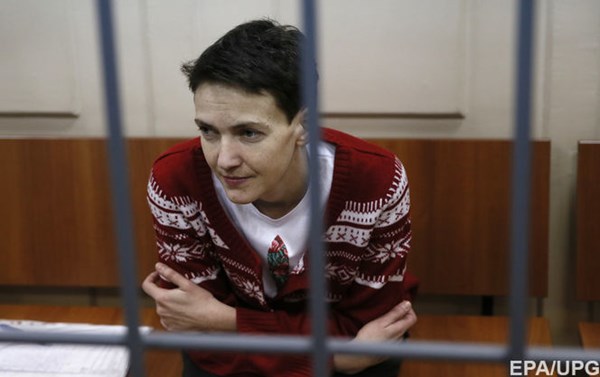The Kremlin says an exchange for Savchenko is 'theoretically possible'
The Chief of the Presidential Administration of Russia, Sergei Ivanov, stated that the case of Nadiya Savchenko has nothing to do with the Minsk Agreements, but a prisoner exchange including her is theoretically possible, Interfax reported.
“Regarding a possible exchange, theoretically, it is possible. With full respect for the legislation of the Russian Federation, the decision on this issue can only be made by the President of Russia,” Ivanov said. He also addressed whether the exchange of Savchenko is possible from a theoretical and legal standpoint.
Speaking of whether such exchange is possible within the framework of the Minsk Agreements, Ivanov noted that it had nothing to do with the Minsk Agreements because the Russian Federation isn’t a party to the conflict.
The Minsk Agreements refer to an agreement at a Summit in Minsk that took place on February 11-12, 2015, by the leaders of Germany, France, Ukraine and Russia in Normandy Four format. It was signed by the Trilateral Contact Group on Ukraine, consisting of representatives of Ukraine, Russia and the self-proclaimed Donetsk and Lugansk People’s Republics, and is aimed at the de-escalation of the armed conflict in eastern Ukraine.
During his meeting with the United States Secretary of State John Kerry, Russian President Vladimir Putin reported that the issue of Savchenko can be dealt with at a certain point in time. Kerry stated this himself while speaking on the results of negotiations with Russian leadership in Moscow.
Earlier, the Press Spokesman for the President of Russia, Dmitry Peskov, speaking about the proposal of the President of Ukraine Petro Poroshenko to exchange Savchenko, stated that Russia will act according to the law.
Last week, in a telephone conversation with Vladimir Putin, American President Barack Obama asked for the release of Nadiya Savchenko, in accordance with the provisions of the Minsk Agreements on the need to release all illegally held people.
Last Tuesday, a Russian court found Savchenko guilty of complicity in the killing of two Russian journalists and sentenced her to 22 years in prison.
The judge in the Russian town of Donetsk said Savchenko had been driven by "political hatred".
"A propaganda machine is at work here, absent of justice and freedom," Savchenko’s lawyer wrote on Twitter.
It is widely believed that Savchenko was in fact captured by Luhansk People’s Republic (LPR) separatists in eastern Ukraine and was illegally transported to Russia, where the case was fabricated against her.
Savchenko was elected to the Ukrainian Verkhovna Rada in absentia in October of 2014 and became an official delegate of the PACE several months later.
Rallies in support of her immediate release have taken place in Ukraine, Russia and other countries around the World, and many Western leaders consider the case to be little more than a show trial.
